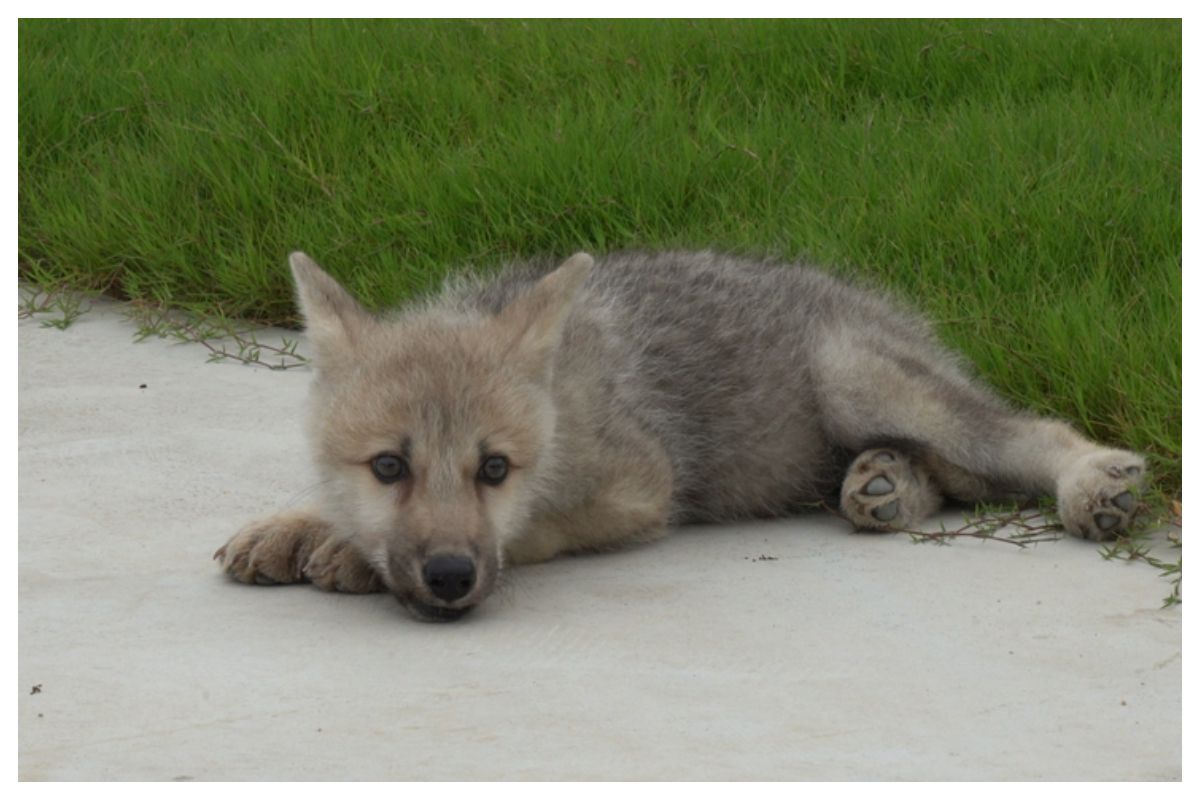A Beijing-based gene firm on 19 Sept 2022 announced the debut of the world's first cloned wild arctic wolf via video, 100 days after its birth in a Beijing lab. Experts said its birth pioneers the breeding of more rare and endangered animals through cloning technology.
To save the endangered animal, we started the research cooperation with Harbin Polarland on cloning the arctic wolf in 2020. After two years of painstaking efforts, the arctic wolf was cloned successfully. It is the first case of its kind in the world-Mi Jidong, the company's general manager of the Beijing-based Sinogene Biotechnology Co, said at a press conference in Beijing.
The birth of the world's first cloned wild arctic wolf is a milestone for the application of cloning technology, which is of great significance to the conservation of rare and endangered animals and biodiversity, experts believe.
Born on June 10, the wolf, named Maya, is in very good health, as the video showed. Its donor cell came from the skin sample of a wild female arctic wolf, which had been introduced from Canada to Harbin Polarland. Its oocyte was from a female dog and its surrogate mother was a beagle, according to Zhao Jianping, the company's deputy general manager.
The cloning of the arctic wolf was accomplished by constructing 137 new embryos from enucleated oocytes and somatic cells, followed by the transfer of 85 embryos to the uteri of seven beagles, of which one was born as a healthy wolf - Maya, Zhao noted.
The selection of a dog as Maya's surrogate was made because dogs share genetic ancestry with ancient wolves and it's more likely to succeed through cloning technology, experts said.
The International Union for Conservation of Nature, or the IUCN, lists arctic wolves as endangered in the Red List of Threatened Species. In China, arctic wolves are introduced from overseas and they are bred in zoos.
Source: globaltimes.cn
A Beijing-based gene firm on 19 Sept 2022 announced the debut of the world's first cloned wild arctic wolf via video, 100 days after its birth in a Beijing lab. Experts said its birth pioneers the breeding of more rare and endangered animals through cloning technology.
To save the endangered animal, we started the research cooperation with Harbin Polarland on cloning the arctic wolf in 2020. After two years of painstaking efforts, the arctic wolf was cloned successfully. It is the first case of its kind in the world-Mi Jidong, the company's general manager of the Beijing-based Sinogene Biotechnology Co, said at a press conference in Beijing.
The birth of the world's first cloned wild arctic wolf is a milestone for the application of cloning technology, which is of great significance to the conservation of rare and endangered animals and biodiversity, experts believe.
Born on June 10, the wolf, named Maya, is in very good health, as the video showed. Its donor cell came from the skin sample of a wild female arctic wolf, which had been introduced from Canada to Harbin Polarland. Its oocyte was from a female dog and its surrogate mother was a beagle, according to Zhao Jianping, the company's deputy general manager.
The cloning of the arctic wolf was accomplished by constructing 137 new embryos from enucleated oocytes and somatic cells, followed by the transfer of 85 embryos to the uteri of seven beagles, of which one was born as a healthy wolf - Maya, Zhao noted.
The selection of a dog as Maya's surrogate was made because dogs share genetic ancestry with ancient wolves and it's more likely to succeed through cloning technology, experts said.
The International Union for Conservation of Nature, or the IUCN, lists arctic wolves as endangered in the Red List of Threatened Species. In China, arctic wolves are introduced from overseas and they are bred in zoos.
Source: globaltimes.cn
